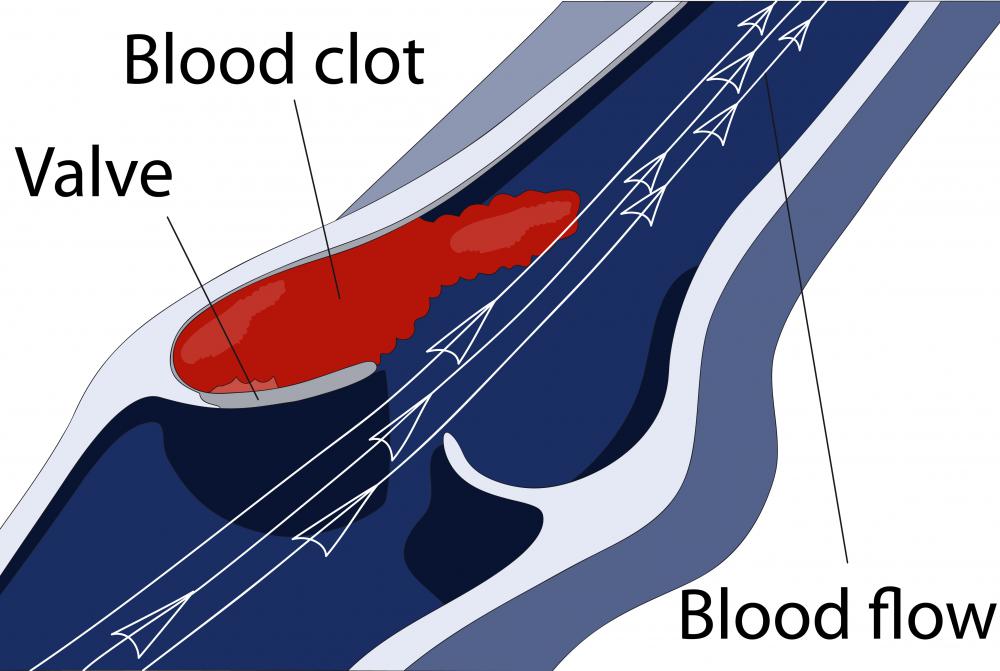At TheHealthBoard, we're committed to delivering accurate, trustworthy information. Our expert-authored content is rigorously fact-checked and sourced from credible authorities. Discover how we uphold the highest standards in providing you with reliable knowledge.
What is Activated Protein C Resistance?
Activated protein C resistance refers to a blood or hemostatic disorder that occurs when the enzyme fails to regulate blood clotting, resulting in abnormal venous thrombosis. Over 80 percent of the time, the condition is inherited. Once diagnosed, treatment involves heparin injections followed by lifelong oral warfarin therapy.
Protein C normally becomes activated when it is exposed to thrombin combined with thrombomodulin on the endothelial cells, or the lining, of blood vessels. After activation, protein C typically breaks down clotting factors Va and VIIIa, preventing blood clot formation. Researchers discovered that the inherited disorder involves a mutation in clotting factor V. This mutation, called factor V Leiden, makes this particular clotting factor immune or resistant to the effects of activated protein C, negating an anticoagulant response.

Scientists suggest that the risk of developing thromboses is almost eight times greater in persons with activated protein C resistance that is inherited, compared to the average person. The risk generally dramatically increases to 90 times greater for those who inherit identical pairs of the gene. Deep vein thrombosis (DVT) is a common symptom, but blood clots may form anywhere along the venous system. Abnormal blood clot formation might appear as early as the teen years, and biological stressors that include infection, pregnancy or surgery, are usually contributing factors.

Cancer, inflammatory diseases and lupus may bring about acquired activated protein C resistance. High cholesterol, oral contraceptive use and pregnancy might also trigger the disorder. In the acquired disorder, there is no clotting factor mutation. In the case of lupus, the chemical reactions occurring in the body cause factor V resistance without mutation. In the other conditions, researchers believe activated protein C resistance occurs because the body experiences abnormally high levels of clotting factors VII and VIII and, possibly, higher levels of fibrinogen. Without sufficient amounts of activated protein C, these elevated clotting factors precipitate blood clots.

When physicians suspect activated protein C resistance, they may perform prothrombin time (PT) and activated partial thromboplastin times (aPTT). The PT and aPTT involve the time it takes for blood to clot normally and following the addition of calcium and a phospholipid. In the absence of possible infections or autoimmune diseases, activated protein C resistance might be added to the plasma to evaluate clotting time with the substance as opposed to normal PT times. Similar times between the two tests might be indicative of the disorder. Further testing may include identification the factor V Leiden mutation.
AS FEATURED ON:
AS FEATURED ON:













Discuss this Article
Post your comments